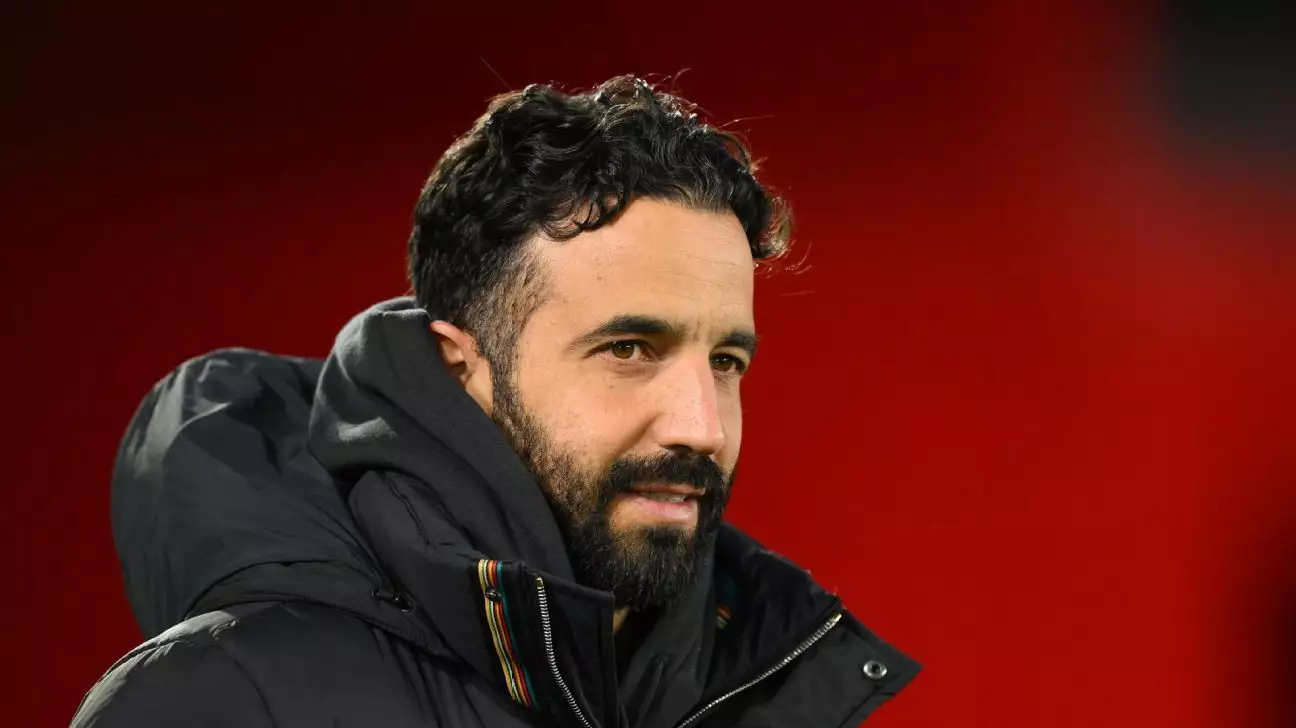Ruben Amorim’s appointment as the manager of Manchester United has been anything but smooth. Stepping into a role previously helmed by Erik ten Hag, Amorim has found himself in the midst of turmoil, with the club languishing in the Premier League standings. His tenure began with high hopes, yet those aspirations have quickly been tempered by the harsh realities of frequent losses and mounting pressure. The 40-year-old manager candidly admitted to wrestling with doubts regarding the timing of his arrival, particularly during a dismal December when the team struggled to find its footing.
In a situation where many would crumble under the weight of expectation, Amorim’s candid expression of self-reflection speaks volumes about his character. His initial uncertainty creates a human connection; it shows that even those at the peak of their profession can face moments of doubt. Yet, he has displayed resilience, claiming that with time, he realized this could be a pivotal moment for the club—one that could lay the groundwork for a revitalized future.
Strategic Risk-Taking: A Gamble Worth Taking?
The question arises: are the risks Amorim has decided to take the right ones? In a bold move that has raised eyebrows among fans and pundits alike, he allowed key players like Marcus Rashford and Antony to depart in the January transfer window without securing immediate replacements. In the realm of football, such decisions are often met with backlash; fans loathe to witness star players leave, especially in a season fraught with adversity.
Amorim’s gamble, however, is rooted in a longer-term vision. He aims to rebuild and reshape the squad to meet future aspirations. As he stated, “There are things here that are more important than scoring 10 more goals this season.” This mentality underscores a deeper understanding of the dynamics involved in high-level football management. Rather than patching over immediate problems, he’s laying the foundation for sustainable success.
Yet, such a strategy demands patience from supporters, a commodity that can be in short supply when the team is teetering on the brink of relegation. It raises a critical dilemma: can fans, accustomed to a historic legacy of triumph, genuinely buy into a long-term vision when present woes are so apparent? That’s the paradox Amorim must navigate deftly moving forward.
Turning Adversity into Opportunity
Amorim’s perspective that this “suffering” could eventually lead to progress is intellectually compelling. While United’s struggles may be disheartening in the moment, he views them as a process of necessary evolution. This focus on adversity as a catalyst for improvement rather than a mere hurdle can foster a growth mindset among players. The ability to glean valuable lessons from difficult situations speaks volumes about Amorim’s potential as a transformative leader.
Furthermore, his assertion that we might be witnessing a crucial developmental phase for United highlights a level of insight seldom seen in managerial discourse. By embracing the hardships, he encourages a culture of resilience among players and staff. Fans may bristle at talk of a “learning experience”, but if Amorim can instill a strong sense of purpose and strategy going forward, he may very well win over skeptics in time.
A Coach’s Ambition at a Historic Club
Ultimately, Amorim’s unyielding belief in Manchester United should not go unnoticed. His conviction—”this club is one of the best”—is the essence of what it means to manage a giant like United. The pressure to deliver results at such a storied club is immense, and Amorim’s acknowledgement of that reality without shying away from commitments reveals a refreshing authenticity.
As the current season edges closer to a conclusion, the importance of vision and strategy becomes pivotal. Amorim’s willingness to confront uncomfortable truths and embrace the role of underdog, albeit reluctantly at times, suggests that he may just be the catalyst for a new chapter in United’s storied history. The road ahead remains uncertain, but one thing is clear: this is a manager who is willing to embrace change, setting the stage for potential resurgence in the years to come.

